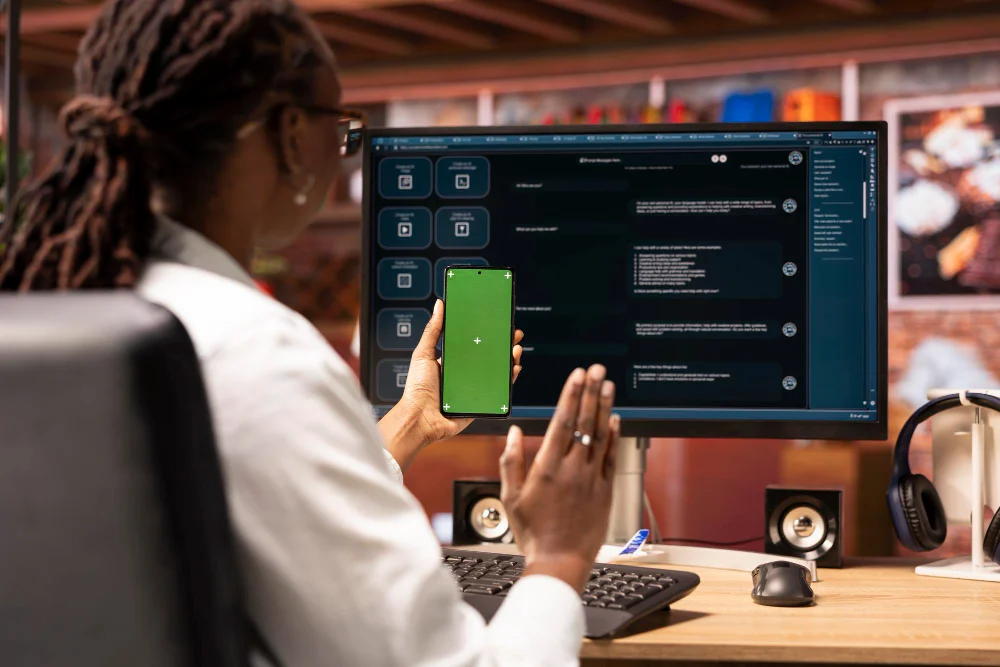In today’s fast-paced digital economy, startups are increasingly turning to mobile and web apps to launch, scale, and succeed. Whether it’s a food delivery service, a fintech solution, or a health-tech platform, apps play a central role in customer engagement, revenue generation, and long-term growth. This is where app development for startups with Garage2Global becomes a game-changer.
Garage2Global offers affordable, startup-friendly app development services tailored for entrepreneurs who need innovative, scalable, and budget-conscious solutions. By leveraging cutting-edge technologies like Flutter and React Native, Garage2Global ensures that startups don’t just build apps they build sustainable businesses.
This article explores why startups need apps in 2025, the step-by-step process of app development with Garage2Global, cost breakdowns, challenges, solutions, and real-world scenarios to show why Garage2Global app solutions are the best choice.
Why Startups Need App Development in 2025
The year 2025 marks an era where mobile-first business models dominate the global market. Here’s why startups can’t ignore app development anymore:
- Customer Reach: Over 6.5 billion smartphone users worldwide mean startups need apps to connect with audiences.
- Investor Confidence: Venture capitalists prefer startups with a scalable digital product.
- Automation & Efficiency: Apps streamline workflows, reducing operational costs.
- Competitive Advantage: A well-designed app can make or break a startup in crowded industries.
- Monetization Opportunities: Apps open revenue streams via subscriptions, ads, and e-commerce.
Garage2Global understands these trends and delivers startup-friendly app development that aligns with future market demands.
Why Choose Garage2Global for Startup App Development

Choosing the right partner is crucial. Here’s why startups trust Garage2Global:
- Affordability: Transparent and cost-effective pricing tailored to startup budgets.
- Expertise: A team specialized in Garage2Global software development for early-stage ventures.
- Cross-Platform Solutions: Expertise in Garage2Global Flutter & React Native development.
- Scalability: Apps designed to grow with your startup’s success.
- Dedicated Support: Ongoing maintenance and updates beyond the launch.
Unlike generic agencies, Garage2Global positions itself as a startup growth partner, not just a service provider.
Step-by-Step Process of App Development for Startups
Launching a product fast, within budget, and with quality is the heart of app development for startups with Garage2Global. The process below shows exactly how Garage2Global turns a raw idea into a scalable app by combining MVP thinking, cross-platform engineering, and data-driven iteration. Each stage ends with tangible outputs so founders always know what’s done, what’s next, and what it costs.
1) Discovery & Alignment
Garage2Global begins by understanding the problem you’re solving, who your early adopters are, and what “success” means in the first 90 days. Founders and product strategists co-create a concise problem statement, target persona, and value proposition. Competitive scans and market assumptions are documented, and measurable success metrics (like activation rate or CAC payback) are agreed upfront. This ensures every downstream decision serves a clear business goal.
2) Product Strategy & MVP Scoping
The team maps primary user journeys, identifies “jobs to be done,” and trims features to the smallest set that can validate the business model. Using prioritization methods like MoSCoW and Kano, Garage2Global shapes an MVP that ships quickly yet proves traction. A release roadmap outlines MVP, post-MVP, and v1.0, so stakeholders see how the product evolves. This keeps scope tight without losing sight of near-term growth levers.
3) Technical Architecture & Stack Selection
Architects select a stack that balances speed, cost, and scale, commonly Flutter or React Native for the app, with a Node.js/NestJS or Python backend and PostgreSQL or Firebase for data. The architecture document covers modularity, caching, API design, and cloud choices (AWS/GCP/Azure), including CI/CD and observability. Trade-offs are explicit, for example, when to choose React Native for existing JavaScript teams vs. Flutter for pixel-perfect UI speed. This prevents costly rewrites later.
4) UX Research & Wireframing
Before polishing pixels, Garage2Global validates flows with low-fidelity wireframes. Founders see how users will sign up, complete core tasks, and encounter edge cases. Early feedback improves navigation, reduces friction, and clarifies empty states and error handling. By testing ideas cheaply at this stage, startups save weeks of rework in development.
5) UI Design & Design System
Designers translate wires into a clean, accessible interface backed by a lightweight design system. Components, spacing, color tokens, and typography ensure consistency and speed in future sprints. Motion and micro-interactions are used judiciously to support clarity, not clutter. Deliverables include clickable prototypes and export-ready assets for Flutter or React Native.
6) Backlog Creation & Project Plan
Garage2Global writes user stories with acceptance criteria that are testable and unambiguous. Epics group related functionality, while the plan outlines sprints, milestones, and risks. A simple RACI clarifies who decides, who executes, and who reviews. With a story-point baseline, founders get realistic timeline and cost visibility.
7) Dev Environment & CI/CD Setup
Repositories, branch strategy, code quality gates, and pipelines are set up on day one. Automated builds, tests, and app distribution channels (TestFlight, internal tracks) shorten feedback loops. Feature flags enable safe, incremental releases. This engineering hygiene keeps velocity high as the team scales.
8) Backend & API Development
The backend implements core domain logic with secure authentication, role-based access, and rate limiting. APIs REST or GraphQL are documented with OpenAPI/Swagger for easy frontend integration. Integrations such as payments, email/SMS, maps, or analytics are wrapped behind services to minimize vendor lock-in. Observability (logs, metrics, traces) is baked in for quick troubleshooting.
9) Mobile App Development (Flutter / React Native)
Frontend engineers build modular screens, state management (e.g., Bloc/Provider in Flutter or Redux/Context in React Native), and robust navigation. Offline support, caching, and graceful error states create resilience in real-world conditions. Native device capabilities like camera, location, and push notifications are integrated with attention to permissions and privacy. Performance budgets guide decisions so the app feels fast on mid-range devices.
10) Quality Assurance & Testing
Testing spans unit, widget/component, integration, and end-to-end flows across a representative device matrix. Manual exploratory testing catches UX edge cases that automation can miss. Accessibility checks (contrast, labels, focus order) ensure broader usability. A repeatable regression suite safeguards velocity as features ship weekly.
11) Security, Compliance & Privacy
Security is treated as a product feature, not a checkbox. Data in transit and at rest is encrypted, secrets are vaulted, and OWASP MASVS guidance reduces mobile attack surfaces. If the domain requires it, GDPR/CCPA, PCI-DSS, or HIPAA controls are planned early to avoid last-minute launch delays. Privacy policies and consent flows are implemented transparently to build user trust.
12) Analytics, Telemetry & Experimentation
Although events are defined from the very first sprint rather than after launch, Garage2Global simultaneously sets up product analytics, crash reporting, and performance dashboards that are directly tied to KPIs such as activation, retention, and feature adoption. Moreover, cohort analyses and funnels clearly reveal where users drop off. In addition, A/B testing and feature flags enable safe experiments; therefore, these strategies collectively drive sustainable growth.
13) Beta Launch & Feedback Loop
A private beta with target users first validates core hypotheses under real usage. Moreover, structured feedback through in-app prompts and lightweight surveys quickly surfaces usability issues. In addition, crash logs and session replays expose hidden defects. Consequently, the team triages fixes into hot patches for stability and adds remaining improvements to the sprint backlog for fit-and-finish.
14) App Store Readiness & Launch
App Store and Play Store listings are prepared with persuasive copy, screenshots, preview videos, and ASO keywords. Privacy labels, permissions rationale, and review-guideline compliance are double-checked. A staged rollout protects uptime and supports quick rollback if needed. Backend autoscaling and monitoring are verified ahead of the traffic spike.
15) Post-Launch Support & Growth
After go-live, Garage2Global operates with clear SLAs for incident response and bug fixes. User feedback channels feed the roadmap, while analytics guide what to optimize next onboarding, search, or notifications. Regular releases deliver improvements without destabilizing the core experience. This rhythm compounds retention and ratings.
16) Scaling Architecture & Performance
As traction grows, the system evolves with caching, database indexing, and, where justified, domain-driven microservices. Media is offloaded to CDNs, jobs move to queues, and heavy tasks become serverless functions. The mobile app adopts code-splitting and lazy loading to keep startup time snappy. These upgrades are planned, not rushed, so costs remain predictable.
17) Monetization, Payments & Compliance
Whether the model is subscriptions, in-app purchases, ads, or transaction fees, Garage2Global instruments billing flows and revenue analytics. Edge cases like failed renewals, proration, and refunds are handled gracefully. The team ensures regional tax, invoicing, and consumer-protection requirements are met. Clear pricing and value messaging improve conversion without dark patterns.
18) Internationalization & Localization
If expansion is in scope, the app is prepared for multiple locales, currencies, and right-to-left layouts. Copy is externalized for translators, and date/number formats respect user settings. Content and imagery are reviewed for cultural fit. This readiness lets startups seize global opportunities without a rewrite.
19) Governance, Documentation & Handover
Founders receive living documentation, including architecture overviews, API specs, runbooks, and onboarding guides. Furthermore, admin dashboards and internal tools simplify operations such as refunds, flags, or content moderation. In addition, access controls and audit logs safeguard sensitive actions. As a result, a clean handover ensures the startup is not dependent on heroics.
20) Roadmap Evolution & Continuous Discovery
The process doesn’t end at v1. Garage2Global supports continuous discovery, regular user interviews, data-led opportunity sizing, and small experiments. The roadmap blends growth bets with tech-debt pay-down so speed and quality stay in balance. This cadence keeps the product aligned with the market and the business model.
Cost of App Development for Startups with Garage2Global

One of the biggest concerns for startups is cost. Garage2Global makes pricing transparent and startup-friendly.
Cost Comparison Table
| Type of App | General Market Cost (USD) | Garage2Global Cost (USD) | Savings (%) |
| Basic MVP App | $20,000 – $40,000 | $10,000 – $18,000 | 50% |
| Mid-Level App (e.g., eCommerce) | $40,000 – $80,000 | $20,000 – $35,000 | 55% |
| Advanced App (AI/IoT features) | $80,000 – $150,000 | $40,000 – $65,000 | 60% |
Garage2Global’s approach ensures startups pay less but get more in terms of scalability and quality.
Startup App Development Cost Calculator
Startups often ask: How do I estimate my app cost? Garage2Global simplifies this with a formula-based approach.
Formula:
Cost = (Number of Features × Complexity Factor × Development Hours) + Maintenance Cost
Example Calculation:
- Features = 10
- Complexity Factor = 3 (on a scale of 1–5)
- Development Hours = 400
- Maintenance = $5,000
So, Cost = (10 × 3 × 400) + 5000 = $17,000
This calculator helps startups predict and plan budgets before committing.
Cross-Platform App Solutions for Startups
Startups can’t afford separate Android and iOS apps. Garage2Global specializes in cross-platform solutions using Flutter and React Native.
| Factor | Flutter | React Native | Garage2Global Approach |
| Performance | Near-native | Near-native | Select based on startup needs |
| UI/UX | Highly customizable | Consistent with native look | Tailored design |
| Cost | Affordable | Affordable | Both supported |
| Best For | MVPs, fast launch | Scaling startups | Custom strategy |
By offering Garage2Global Flutter & React Native development, startups save time, money, and effort.
Common Challenges Startups Face in App Development & Garage2Global Solutions
- Limited Budget
- Garage2Global offers affordable app development services with modular pricing.
- Garage2Global offers affordable app development services with modular pricing.
- Lack of Technical Expertise
- Garage2Global acts as a technology partner, guiding founders.
- Garage2Global acts as a technology partner, guiding founders.
- Scalability Issues
- Apps are built with future growth in mind.
- Apps are built with future growth in mind.
- Tight Deadlines
- Agile development ensures faster time-to-market.
- Agile development ensures faster time-to-market.
- User Retention
- Focus on UI/UX and customer engagement strategies.
- Focus on UI/UX and customer engagement strategies.
Case Studies / Success Scenarios
Case 1: Food Delivery Startup
A small food delivery startup needed an MVP app within two months. Garage2Global developed a cross-platform Flutter app for under $15,000. The startup gained 10,000 downloads in the first quarter.
Case 2: FinTech Startup
A fintech company partnered with Garage2Global for a secure, scalable React Native app. Development costs were 40% lower than market rates, helping the startup secure Series A funding.
Case 3: HealthTech Startup
Garage2Global created an MVP telemedicine platform with AI-driven features. The app attracted 50,000 users in six months, validating the startup’s business model.
These examples highlight how Garage2Global helps startups launch and grow successfully.
Conclusion:
For startups in 2025, app development isn’t optional, it’s essential. But high costs, scalability issues, and technical challenges often stand in the way. That’s why app development for startups with Garage2Global is the smartest choice.
With affordable pricing, cross-platform expertise, MVP-first strategies, and ongoing support, Garage2Global empowers entrepreneurs to launch apps that succeed. Whether you’re building a fintech, e-commerce, or AI-driven solution, Garage2Global is your growth partner.

